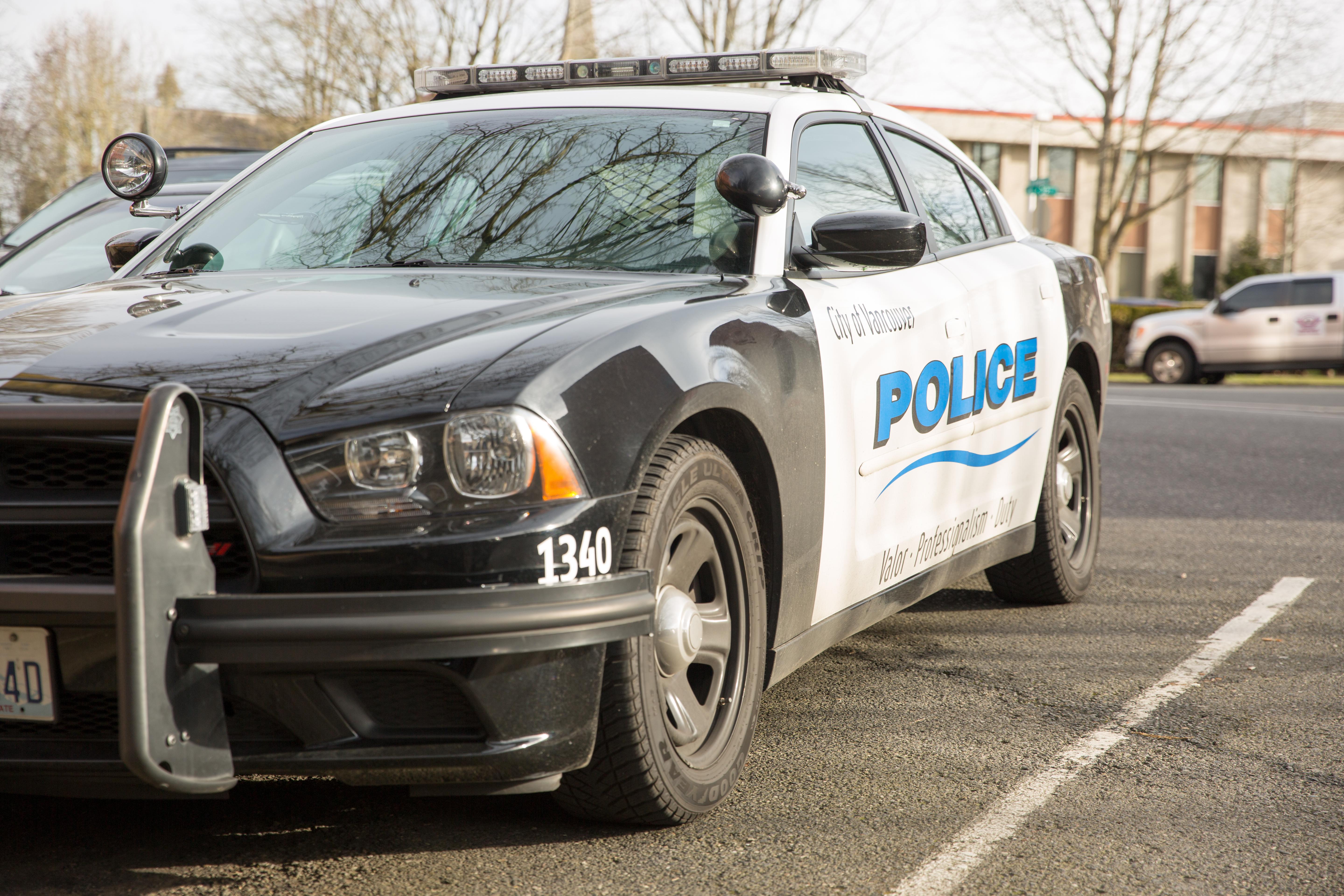
A Vancouver police car is pictured March 14, 2019, in Vancouver, Wash.
Bryan M. Vance / OPB
After a year of discussing heightened concerns of Vancouver Police Department violence, a task force ended its work in September. But some members said Monday more work needs to be done.
At least four people who sat on the Community Task Force on Policing — each of whom have histories advocating for communities of color or people with behavioral health needs — said the task force highlighted a need for a more permanent entity to oversee the department.
“We need a standing body,” said Lynn Marzette, a task force member. “So that you have citizens’ continued involvement in taking a look at what the police department is doing.”
The request, which others in the contingent echoed, is a bid to keep the door of public oversight wedged open. Vancouver does not have a citizen-led police oversight board. The task force, which held its final meeting Sept. 1, provided a rare opportunity for hands-on reform by people outside of the department.
Shareefah Hoover, of the NAACP Vancouver’s legal redress committee, said the contingent on the task force have called for a permanent citizen-led body since the task force first gathered.
“That was something that was requested from the outset,” Hoover said. “We wanted the charge of the task force to be the floor — not the ceiling.”
On Monday evening, Vancouver City Manager Eric Holmes told Vancouver City Council he intends to set up another advisory group. Holmes didn’t make clear how wide its scope would be, but said the group would report directly to him.
Holmes compared his advisory group to one that already reports directly to Vancouver Police Chief James McElvain. He said the combined efforts could provide more transparency and accountability the public is seeking.
“Where we can bring those together … and capitalize on a wide range of knowledge and perspectives in the community, we should do so,” Holmes told the council.
The discussions arose as council received a wrap-up report about the task force. The task force formed September 2020 in response to an independent, city-commissioned audit that found use of force rose 65% from 2017 to 2019. The report recommended 84 policy changes.
The city commissioned the report after Vancouver police shot four people, killing three, in February and March 2019. Two were people of color and the third person was experiencing homelessness.
The task force was comprised of Holmes, community members, some elected city leaders and police brass. It also included members of the police department’s two unions, respectively representing commanders and rank-and-file officers.
According to city staff, the task force has made 74 changes to policy so far. They included changes to policies for restraints, impact weapons, Taser use, data collection and more. Kim Kapp, a department spokesperson, said the recommendations gave the department a head-start by the time lawmakers passed statewide reforms.
“I think we were a bit ahead of the curve on some of those (state) policy and training changes we needed to make,” Kapp said.
The task force was largely productive, said Hoover and Marzette, but it wasn’t without issues. Both raised concerns about Vancouver police receiving a pay increase as part of an agreement to outfit them with body-worn cameras.
Others also spoke of resistance they perceived to be coming from the guilds, who regularly negotiate contracts over pay, policies and working conditions with the city. Ed Hamilton Rosales, president of the Southwest Washington Council for the League of United Latin American Citizens, said he struggled to gain traction when he asked for policies to outline consequences for officers who fail to follow them.
“It does no good to have a policy that cannot be enforced,” Hamilton Rosales said. “At least in my world, that’s how it works. If you’re hired by a company and you don’t do a job – or you do a bad job – then you’re generally fired.”
Kim Schneiderman, executive director of the Southwest Washington offices of the National Alliance on Mental Illness, agreed with Hamilton Rosales. She said the task force was often “an interesting waste of time.”
A representative for the officer’s guild did not respond to media inquiries on Monday.
Reached by phone after the City Council presentation, Marzette called Holmes’ proposal to create another advisory board “a good start,” but he suggested any group also hold public meetings to survey community input.
“There needs to be an adequate degree of transparency in terms of what’s going on, and I hope there’s going to be some forums to be available and accessible to give community updates,” he said.
Ultimately, Marzette said, the goal hasn’t changed.
“We as a community want to see a significant adjustment in police behavior to alleviate the disparate treatment of people of color, the mentally ill, the economically depressed people within this community going forward,” he said. “That’s the whole purpose.”

